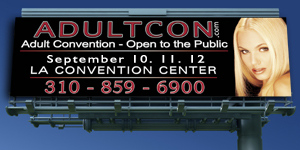Facebook is Giving Away Money!
 If Facebook gives you money will you place an ad? Despite ads under performing as a whole, most people in the adult entertainment industry have not been able to take advantage of ads due to Facebook restrictions. But some of us can. In fact more of us can than think we can.
If Facebook gives you money will you place an ad? Despite ads under performing as a whole, most people in the adult entertainment industry have not been able to take advantage of ads due to Facebook restrictions. But some of us can. In fact more of us can than think we can.
The assumption we make is that an ad has to go to a website. Adult websites are not allowed on Facebook, so you cannot link and therefore you cannot ad right? wrong. You don’t have to link your ad to a website. Link your ad back to your fan page. Use the ad as a way to build fans, and then use your page as a way to promote your brand and push people to your site. But do you consider putting an ad for your fan page a worthwhile investment? What if someone gave you a free $50 in ad money?
Early in 2012 Facebook Marketing Solution which includes a partnership with the National Federation of Independent Business and the U.S. Chamber of Commerce, will be launching a $10 million dollar grant program. The purpose is to give every qualified small business on Facebook $50 towards advertising on the site. This is an effort to promote commerce, help small businesses get an advertising boost and help familiarize small business with Facebook Ads. The primary desired result is awareness, additionally they are looking for more fans for the pages, more revenue for the small business and an increase usage of Facebook ads by small business.
This is a huge opportunity for small business to get acquainted with the ad program and get some free marketing money. Because details have not been released we do not know what counts as a qualified business. But if you do not yet have a fan page for your business, now is the time to build it so you if you do qualify for it, can get you money!



